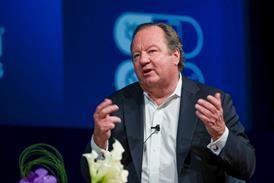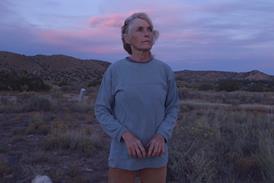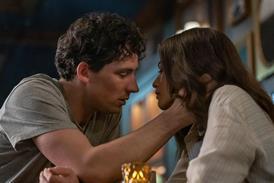Cinema is the most confident and insecure of art forms. When it's on home ground, it's a strutting gang leader, but as soon as it meets one of the old bosses - literature, say, or theatre - it lies down and plays the doormat. And literature and theatre, for their part, seem quite happy with this show of servility.
Literary adaptations (Vanity Fair, Atonement, Brideshead Revisited) still account for a healthy slice of the quality commercial sector - but how often does the film illuminate its source material' How often does it update it or take issue with it'
As Thomas Leitch points out in his recent survey of the field, Film Adaptation & Its Discontents, films continue to suffer from the widespread belief that 'novels are texts, movies are intertexts, and in any competition between the two, the book is better'.
Shakespeare used to treat his sources as wood for the creative fire. Nobody would think of calling Romeo And Juliet or King Lear adaptations yet, by Academy rules, none of the bard's works would count as original screenplays. In Ancient Greece, playwrights often worked simultaneously on the same time-worn legends for upcoming tragedy competitions - there might be an Electra year, followed by an Oedipus year (the risk-averse economics of the film industry, alas, mean we didn't even get to choose between two rival Alexanders).
But literary texts are now canonical in a way they never were in Shakespeare or Sophocles' time, and fidelity - a highly subjective concept - is a guard dog that barks whenever screenwriters and directors play fast and loose with source material. We're also hamstrung by the threat of litigation: dipping into a range of sources for inspiration has become an intellectual-property nightmare no studio would condone.
Hitchcock - perhaps the most Shakespearian film director we have seen - kept an option open on the forgotten psychothriller novel The House Of Dr Edwardes for almost 20 years before he asked Ben Hecht to use it as the basis for the Spellbound script. Nobody was bothered by Hecht and Hitchcock's roughshod treatment of their source material - it helped turn a mediocre page-turner into a memorably disturbing dialogue between cinema and its close cousin, psychoanalysis.
However, the director's first US project, Rebecca, was widely attacked as being unfaithful to a more prestigious source, Daphne Du Maurier's novel - not least by producer David O Selznick, who objected: 'We bought Rebecca, and we intend to make Rebecca.' Hitchcock had to resort to in-camera editing to impose his vision on the film; he later outlined his approach to source material to Francois Truffaut, saying: 'What I do is to read a story only once, and if I like the basic idea, I just forget all about the book and start to create cinema.'
Exploding the canon
Hitchcock's approach has been taken with far more canonical works than Rebecca; Jane Austen's Emma was reworked in high-school romcom Clueless, and Homer's Odyssey provided the blueprint for the Coen brothers' O Brother Where Art Thou' But it's surprising there aren't more such creative riffs, considering how many great stories are out there, and out of copyright.
Even rarer are the cinematic equivalents of theatrical stagings in which the text is adhered to but settings, costumes and moods are radically different. One of the best Shakespeare adaptations, Richard Loncraine's Richard III (1995), set the bard's dark tale in a fantahistorical 1930s fascist England. But cinema's confidence in this direction (see Kenneth Branagh's recent Magic Flute or Alfonso Cuaron's US-set 1997 Great Expectations) lags decades behind the theatre, where there have been modern-dress Shakespeare productions since the 1920s.
There are glimmers of hope. Pascale Ferran's Lady Chatterley (2006) - based on the long-unpublished second version of DH Lawrence's novel - is an example of how an adaptation can steer its own confident course. We'll never see a Harry Potter reworked with such an auteurist touch - there are too many fans of the book to please. But it would be nice if, away from such high-profile franchises, cinema stood up to the literary bully more often. We need more inspired faithfulness, less slavish fidelity.



















No comments yet